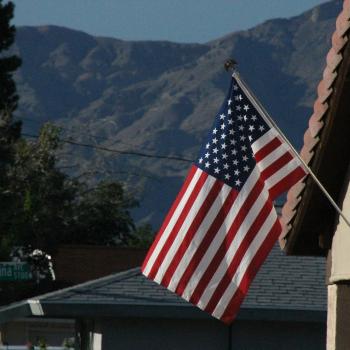As long as we’re asking people to come clean about what they knew and didn’t: I didn’t know about McCarrick. I get a fair bit of Catholic gossip here and there, but the whole “open secret” of McCarrick’s beach house in NJ and the promiscuity of the clergy was not something that came to my ears specifically, that I recall. (Prior to last month — now of course I’m hearing it.) I have a relative who was a major donor to the church in northern New Jersey during the 80’s and 90’s, and so the clergy I met as a result of that — an auxiliary bishop and a few priests — would not have been sharing such stories in Aunt Helen’s family circle. She would have belted them.
I can’t think of any time I’ve had first hand knowledge of a priest having an affair. Honestly, the priests I know don’t even inspire unholy conjecture in that regard.
I have dealt with non-criminal concerns in my years in parish ministry — making sure policies are implemented correctly, for example, or informing the appropriate authority of a red flag on an issue that fell under someone else’s domain. I’ve been told first hand accounts of other people discovering and fixing non-criminal or strictly regulatory problems that came to their attention, and in some of those cases I’ve been able to observe at least indirect evidence that the problem was being dealt with appropriately on an on-going basis. As we speak I’m waiting on guidance from the diocese on how to handle a complex situation that indirectly affects a ministry I was involved in when the situation arose, but which has already been dealt with forthrightly by the civil authorities and by the church ministries that were directly affected.
All that is normal church life — normal life in general.
But here’s another thing that is a fact of church life in the US: Everyone has a story of dissent.
My kids still joke about “Deacon Fish Pockets” who openly preached one Sunday that the miracle of the loaves and fishes was all about people having pockets in their clothes for storing their food. God bless Steve Ray and the SCA, my kids were already prepped for that nonsense. We politely made it to the playground before we bust out laughing.
I’ve heard about catechists who dissent from clear church teaching. I’ve heard about diocesan staff members who dissent. It is so common a problem that “faithful to the magisterium” is the code phrase Catholics who don’t dissent use to distinguish themselves. When I give talks about the Catholic Writers Guild, that’s one of the distinctives I mention: There are other trade associations in the Catholic publishing industry, but the CWG is exclusively for Catholics who don’t dissent.
What do we do about all that dissent? We ignore it, we avoid it, and we gossip about it.
Every now and then someone sends a letter to a bishop, but mostly people don’t, because we are so full of stories of bishops who don’t give a rip.
What does this do to the Church?
It makes us a people who are used to turning a blind eye.
I’ve had two different lay Catholics who live in New Jersey tell me that everyone in the area knew about McCarrick, and it was general knowledge for decades. These are ordinary parishioners — faithfully Catholic, yes, involved in parish life, but these aren’t priests or seminarians or diocesan staff. The culture of dissent is so firmly established in the Church that the big question isn’t, “Is such-and-such cleric living or preaching contrary to the faith?” but rather: Which ones aren’t???
The culture of dissent enables conservative or “orthodox” predators, too. When one of the “good guys” gets involved in criminal or predatory behavior, it’s hard to believe. We’re desperately to clinging to every shred of orthodoxy we can get.
So we tell ourselves: He knew better. He’s “one of us.” Surely there’s a charitable explanation. In a dissent-ridden Church, certain predators use their apparent orthodoxy as a shield to deflect the attention of Catholics who would be much more critical of an openly-dissenting cleric.
The instinct of the faithful is to not press too hard. When you see a bishop with all the right orthodox street cred, you don’t want to grill him on why he’s so quiet on the one hottest topic in Catholicism right now. You want to give him a Good-Guys Pass. He’s strongly pro-life across the board. He’s good to the liturgy. He’s bringing in good priests. Leave him be.
So dissent is the sword that cuts both ways: It gets us used to shrugging at immoral behavior among the ministers of the Church, and it gets us used to letting off easy those who should be stepping up boldly to denounce it.
It gets us used to living without integrity.
Related:

I just liked this picture. And anyway, what was I going to use instead? Via Wikimedia, Public Domain. Okay, so yeah, that astonishingly not-cherubic Bouguereau in the Praying for Terrible Bishops post could have worked here too. But you got stars instead, deal with it.
















